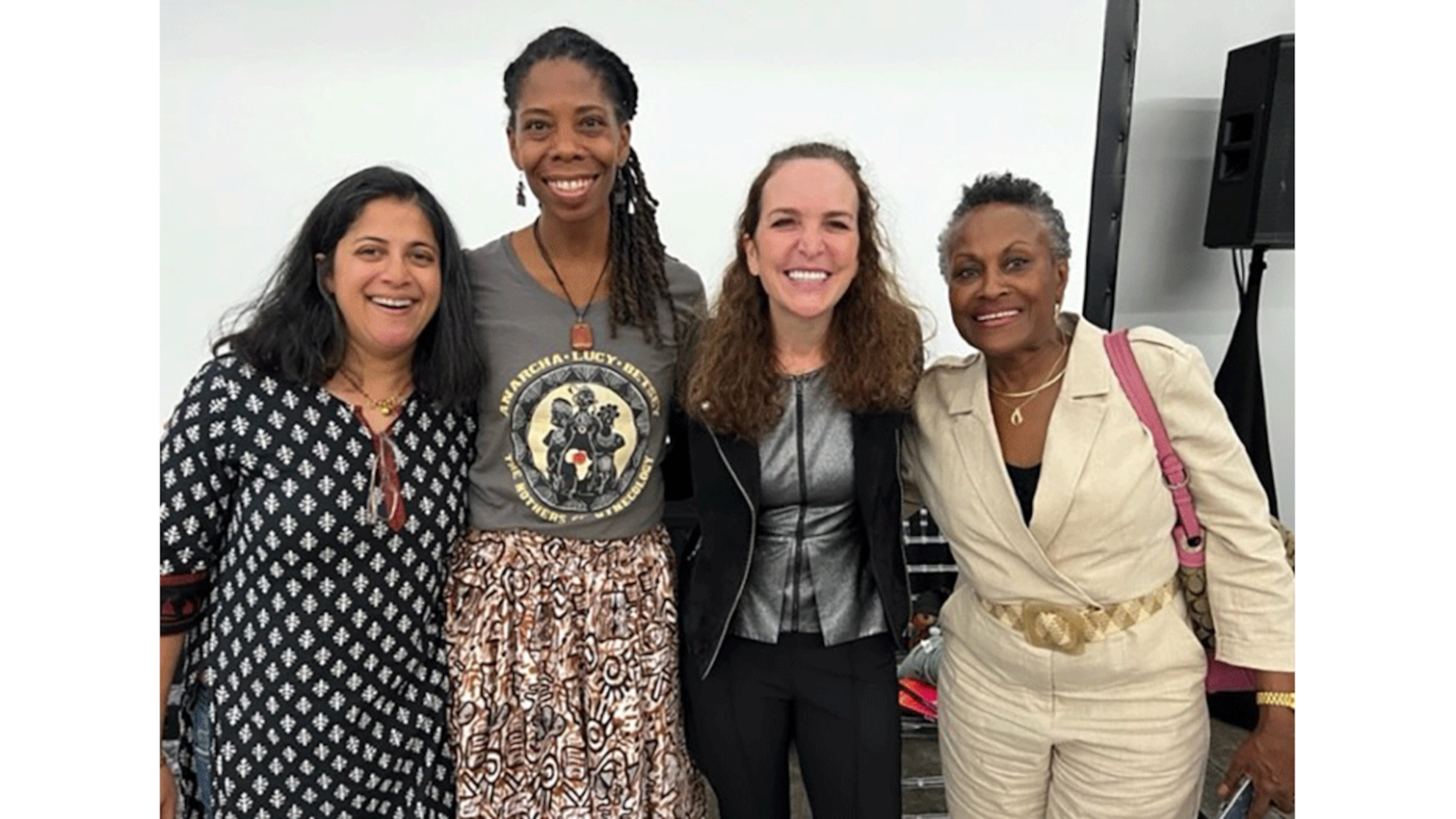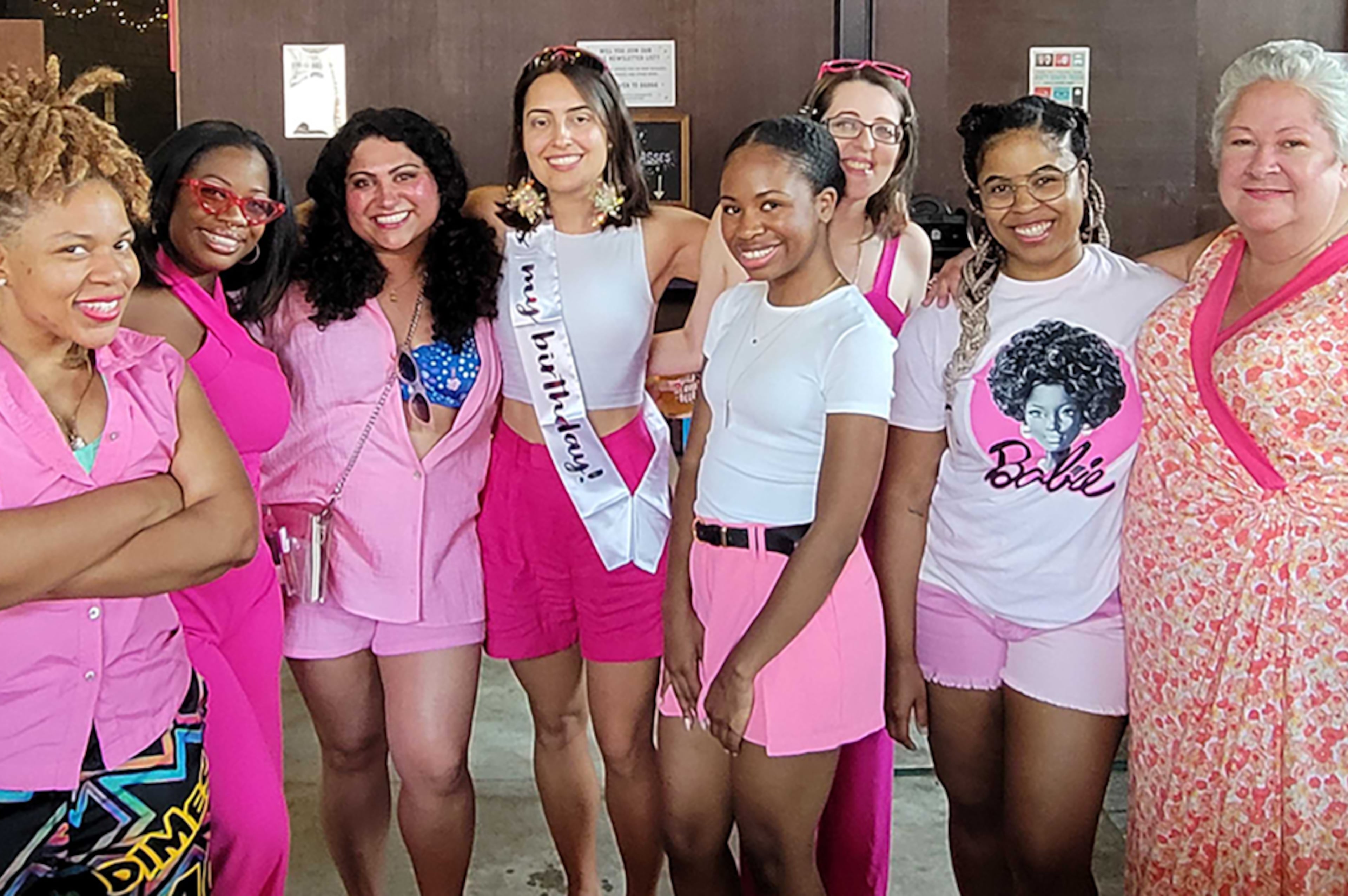OPINION: Dinner with a side of race exploration doesn’t go down easy

In the opening scenes of “Deconstructing Karen” — a documentary centered around a two-hour dinner party in which white women are invited to explore racism — it quickly becomes clear just how difficult it is to talk about race in this country.
Before anyone gets too comfortable, Saira Rao lobs a question that elicits silence, seat shifting, open mouths, raised eyebrows and at least one shaking head.
“I want a show of hands of everyone at this table,” Rao said. “Who is racist?”
Since 2019, Rao, who is South Asian, and Regina Jackson, who is African American, have toured the country with Race2Dinner on a mission to break bread with white women while initiating conversations that acknowledge the oppression of some and hopefully will lead to liberation of all.
A host invites eight to 10 white women — specifically moderate, liberal and progressive white women — to the $2,500 dinners where each woman is asked to reclaim her power and take personal responsibility for freeing themselves and the rest of us from white supremacist culture.
In 2022, Rao and Jackson expanded their reach beyond in-person events with a book, “White Women: Everything You Already Know About Your Own Racism and How To Do Better” (Penguin Random House, $16), and the documentary, even as they weathered criticism of their business model.
Jennifer Winingder of Brookhaven read the book and had seen part of the documentary. When she learned Rao and Jackson were coming to Cobb County to screen the film, Winingder offered to help organize the event.
She disagrees with the narrative offered by mainstream media outlets that Rao and Jackson are profiting from the shaming of white women.
“They are trying to create a community and more authentic relationships. White supremacy and capitalism prevent us from having those relationships,” said Winingder, who is white. “Once you focus on equality for all … it is really liberating.”
At one point during the post-screening conversation, where the crowd consisted 60% of white women and 40% of Black women, moderator Tina Strawn invited the white women to stand up if they acknowledged their racism and were committed to doing something about it and the Black women to stand if they had ever been harmed by a white woman.
“In my life, no white person has ever acknowledged my pain or apologized for harming me,” said Alicia Felder, a Black woman who attended the event. “This is a moment I will remember for the rest of my life. Being seen and the presence of these white women showing up and committing to do better was really something.”
The documentary features a single 2019 dinner that took place in Denver. The conversation toggled between familiar tropes. The women professed themselves to be colorblind. They said they couldn’t be racist because they have spouses or children who are people of color. Some felt they had been victims of reverse racism.
Rao and Jackson pushed the women to think more deeply about how racism manifests in their actions and the ways in which denial, shock and defensiveness are merely tools of oppression.
“Every single dinner is the same,” said Rao when we talked by phone a few days before the metro area screening. “White women have manufactured their helplessness.”
I have spent a lot of time in racial healing groups, and there always comes a point where I begin to wonder if it serves any purpose.
What gets us beyond conversation? How do we make good on a call to action? What is my role?
These are the questions Rao and Jackson want white women to also ask and answer.
Two weeks ago, prompted by the Nashville shooting, Rao had an idea.
On June 5, at 5 a.m., 25,000 people, but mostly white mothers, will assemble in Denver (in Rao and Jackson’s home state of Colorado) to demand that Democratic Gov. Jared Polis ban guns and buy them back.
Rao said the action is an invitation to all of the white women who have said they are committed to making the world a better place for their children. It is also a step forward in fighting anti-Blackness, she said. (If you don’t understand the connection, check out here4thekids.com.)
History has shown us what happens when multiracial coalitions of Americans make demands on the government — there may be change but there is always sacrifice.
Last week, the mood among the women gathered at the Venue at West Cobb in Austell could only be described as hopeful.
“I believe most people are good people and if they are better informed, they would be much stronger advocates for antiracism and they would feel a sense of urgency,” said event attendee Dana Brownlee.
Brownlee, a Black woman, said one of the most memorable moments in the film was when Jackson asked the women, if they had to choose, would they want to trade places with a Black woman?
There were no takers, confirming that on some level, we all understand the racial hierarchy on which the country is built.
There is power in knowledge. There is power in acknowledgment.
But change can only happen when we use that power to take action.
Read more on the Real Life blog (www.ajc.com/opinion/real-life-blog/) and find Nedra on Facebook (www.facebook.com/AJCRealLifeColumn) and Twitter (@nrhoneajc) or email her at nedra.rhone@ajc.com.



